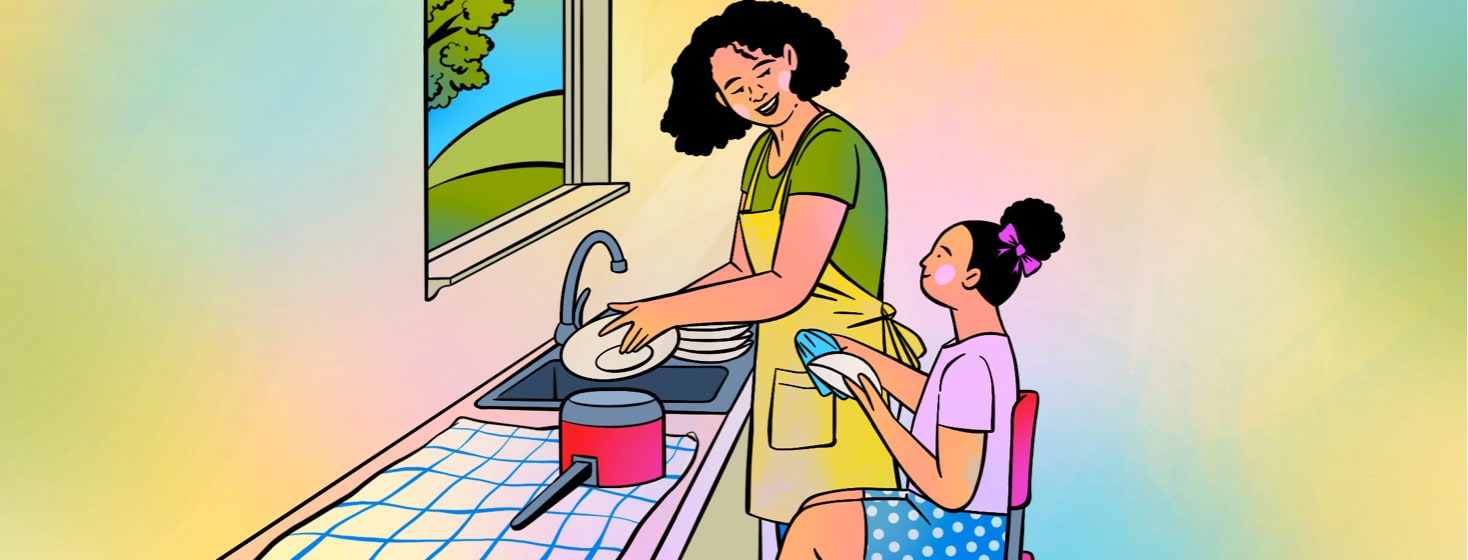Tips for Parents of Children with Juvenile Idiopathic Arthritis
There’s a lot of improvements that have come along for families who have children diagnosed with juvenile idiopathic arthritis (or JRA- juvenile rheumatoid arthritis, which is what it was called when I was diagnosed at age 2).
How JIA has changed since my diagnosis
Information and support
The big one is information and connections. With things like the Internet and social media, parents can learn about the condition, find reliable information about treatments, and connect with others to share wisdom and support.
My mom has often spoken about the lack of support when I was diagnosed as a child. She didn’t know other parents and couldn’t find other children for several years. So, we all had a sense of being on our own in unexplored terrain. Thankfully, that is in the past. With information and digital technologies, parents have more resources at their fingertips.
Treatments have evolved and improved
Another big change is the development and improvements in treatments. When I was a child I had baby Tylenol. Yup—didn’t help much. Oh, and gold shots – how could I forget that pain in the butt (literally). But now there are many newer and more effective drugs out there to minimize the damage of the disease. The lives of children with JIA will likely be much different than my life has been, and that’s a very good thing to see.
Tips for JIA parents
There are still a lot of challenges for children with JIA and their families. There are a lot of doctors’ appointments, tests, therapy sessions, and treatments to navigate— all while raising a child. Reflecting back, I feel lucky that despite the limitations at the time, my parents raised me to be a happy, independent adult and I think the decisions they made were crucial.
Don't treat your child differently
If you have multiple children, treat your child with JIA just as you do the others. If you have one child, treat them the same as if they were not sick. It’s important to grow up not feeling different or like an outcast, but included like everyone else. They may need adjustments or accommodations for their illness, but they are still children and need normalcy.
Set expectations for your child
My parents expected me to do my homework, get good grades, do my chores, and eventually become a responsible adult. JIA may have added to the list of responsibilities, but all the regular ones were still there and needed to be completed. I learned that I had to live my life whether I was ill or not—that it was ultimately up to me to make my life a happy and fulfilling one despite my disease and disabilities.
Keep them involved and educated
From my earliest memories, I remember learning about my disease, my treatments, and the importance of knowing this information and taking care of myself through exercise and therapies. I was involved in my care decisions, even as a child, because my parents knew I would have to maintain myself throughout the course of my life. They instilled in me the responsibility of taking care of my JIA and weighing decisions with no easy answers or outcomes.
Support, but don’t coddle
I have so many memories of resisting taking my medications or avoiding my exercises or crying with pain. It was so very hard on my parents, but their firm support was everything. I needed them to be tough, but also to provide me the help I needed to get through challenging times. I’m sure it was awful and heart-wrenching for them. I’m sure they wanted to break down and give in, but I’m ever thankful that they didn’t.
Pursue aggressive treatment
When I was a young child, the options for treatment were both few and ineffective. If I had a time machine, I’d rewind and bring back many of the treatments available today. They may have greatly reduced permanent joint damage, pain, weakness, and resulting disabilities. It’s hard to weigh these options because they are scary drugs with serious possible side effects, but a lifetime has taught me I’d likely have been better off now if aggressive treatment had been available then. Sure, monitor carefully and watch for issues related to treatment. Consult with the rheumatologist (or medical team) on diet, exercise, and complementary treatments, but don’t skimp on the newer drugs as they have the potential of preventing a great deal of damage and irreversible health problems.
Raising a child with JIA isn’t easy (of course neither is parenting in general!), but the good news is that information, treatment, and support are more readily available than ever before. Take advantage of all these developments to find approaches that will help you navigate these rough and tumble waters.

Join the conversation